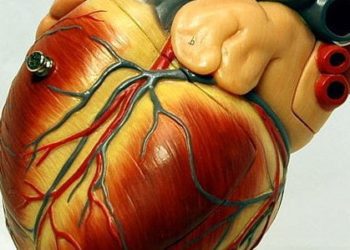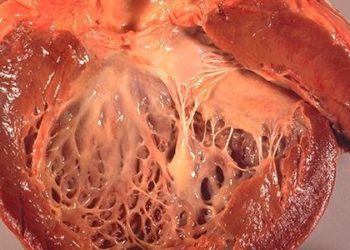Epicutaneous immunotherapy is effective at desensitizing toddlers to peanut allergens
1. In this randomized controlled trial, an epicutaneous patch containing peanut protein was more effective than a placebo in raising the threshold dose required to trigger an allergic reaction to peanuts in toddlers.
2. The epicutaneous immunotherapy patch was associated with higher rates of treatment-related anaphylaxis than the placebo.
Evidence Rating Level: 1 (Excellent)
Study Rundown: Since the turn of the century, the incidence and prevalence of peanut allergies among children have increased dramatically. Notably, it is a common trigger of severe allergic reactions that can continue into adulthood. Although ongoing research is being done, no approved treatment options exist for children younger than four years old. This study was a large international, double-blind, and randomized study evaluating the safety and efficacy of patch-based immunotherapy for 362 children aged one to three years old with peanut allergies. Results of the study found that the patch was significantly more efficacious than placebo at desensitizing children with preexisting non-anaphylactic reactions to peanuts. Additionally, it increased the minimum threshold dose, which triggered allergic reactions. It generally had an acceptable safety profile but had a higher incidence of treatment-related anaphylaxis and anaphylaxis compared to the placebo group. Notably, the results of this study cannot be generalized to those with known severe anaphylactic allergies to peanuts. Further, the majority of the patients included were White or Asian, limiting the generalizability of this study to children of other racial backgrounds. Overall, this study demonstrated that an epicutaneous immunotherapy patch may be an effective treatment for peanut allergies in young children.
Click here to read the study in NEJM
In-Depth [randomized controlled trial]: This study was a double-blind, randomized, placebo-controlled trial involving fifty-one centers across four countries evaluating the efficacy and safety of epicutaneous immunotherapy patches for peanut allergies in children aged one to three years old. The primary outcome of interest was the difference in the proportion of participants between the control and intervention arm who met the baseline eliciting dose of more than 10mg of peanut protein and the post-treatment eliciting dose of at least 1000mg. Additional outcome measures of interest included the rate of adverse events and the change from baseline to 12 months after the intervention in cumulative reactive and eliciting doses between the two groups. Participants were excluded if they had a history of severe anaphylaxis to peanuts requiring intubation, ventilation, or inotropic support. Overall, 362 participants were randomized in a 2:1 ratio to receive the epicutaneous peanut patch (n=244) or placebo (n=118). Preliminary results of the study found that participants in the intervention group were significantly more likely to meet the primary endpoint than those in the placebo (risk difference, 33.4%; 95% Confidence Interval, 22.4-44.5; p<0.001). Treatment-related anaphylaxis occurred in 1.6% of the intervention group and 0% of the placebo group. In summary, the present study demonstrated that this epicutaneous immunotherapy patch was more effective than a placebo at desensitizing children with non-anaphylactic allergies to peanuts.
Image: PD
©2023 2 Minute Medicine, Inc. All rights reserved. No works may be reproduced without expressed written consent from 2 Minute Medicine, Inc. Inquire about licensing here. No article should be construed as medical advice and is not intended as such by the authors or by 2 Minute Medicine, Inc.









